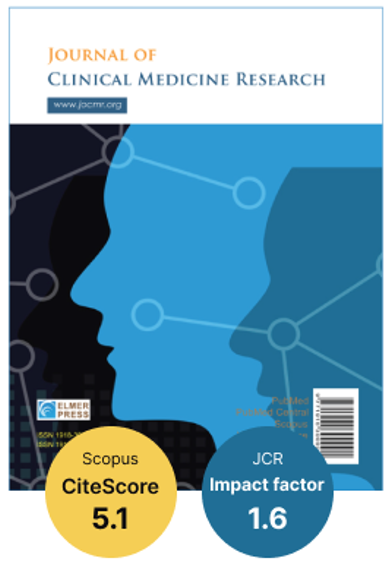Risk Factors and Outcomes of Acute Kidney Injury After Cardiac Surgery: A Retrospective Observational Single-Center Study
DOI:
https://doi.org/10.14740/jocmr5220Keywords:
Acute kidney injury, Cardiac surgery, CABG, Valve replacement, KDIGOAbstract
Background: Acute kidney injury (AKI) following cardiac surgery is a well-described phenomenon, usually associated with hemodynamic changes ultimately leading to ischemic injury to the kidneys. In this study, we assessed the occurrence of AKI in a cohort of patients undergoing elective cardiac surgery at a single center.
Methods: Patients undergoing elective cardiac surgery (coronary artery bypass grafting (CABG) and/or valve repair) between the years 2016 and 2022 were retrospectively included in the study.
Results: During the study, 167 patients underwent CABG, valve replacement, or both procedures. The majority were male (85.0%). Post-operative AKI was observed in 27.5% of patients, with 2.4% requiring continuous renal replacement therapy (CRRT)/dialysis. The majority of AKI cases were staged as Kidney Disease: Improving Global Outcomes (KDIGO) stage 1. Among patients needing CRRT/dialysis, 1.8% recovered renal function within 3 months, with 0.6% experiencing 30-day mortality. In univariate analysis, factors associated with AKI included older age (P = 0.003), severe anemia (P < 0.0001), pre-operative creatinine elevation (P < 0.0001), complex surgeries (P < 0.0001), blood product transfusion (P < 0.0001), longer cross-clamp (XC) and cardiopulmonary bypass (CPB) times (P < 0.0001), and inotropes usage (P < 0.0001). Classical risk factors like diabetes mellitus (DM) and hypertension did not show significant differences. The majority of these factors (severe anemia, age, pre-operative creatinine, post-operative inotrope usage, and cross-clamp times) were consistently significant (P < 0.05) in logistic regression analysis.
Conclusion: Post-operative AKI following cardiac surgery is frequent, with significant associations seen especially with pre-operative anemia. Future investigations focusing on the specific causes of anemia linked to AKI development are essential, considering the high prevalence of hemoglobinopathy traits in our population.

Published
Issue
Section
License
Copyright (c) 2024 Journal of Clinical Medicine Research

This work is licensed under a Creative Commons Attribution-NonCommercial 4.0 International License.






